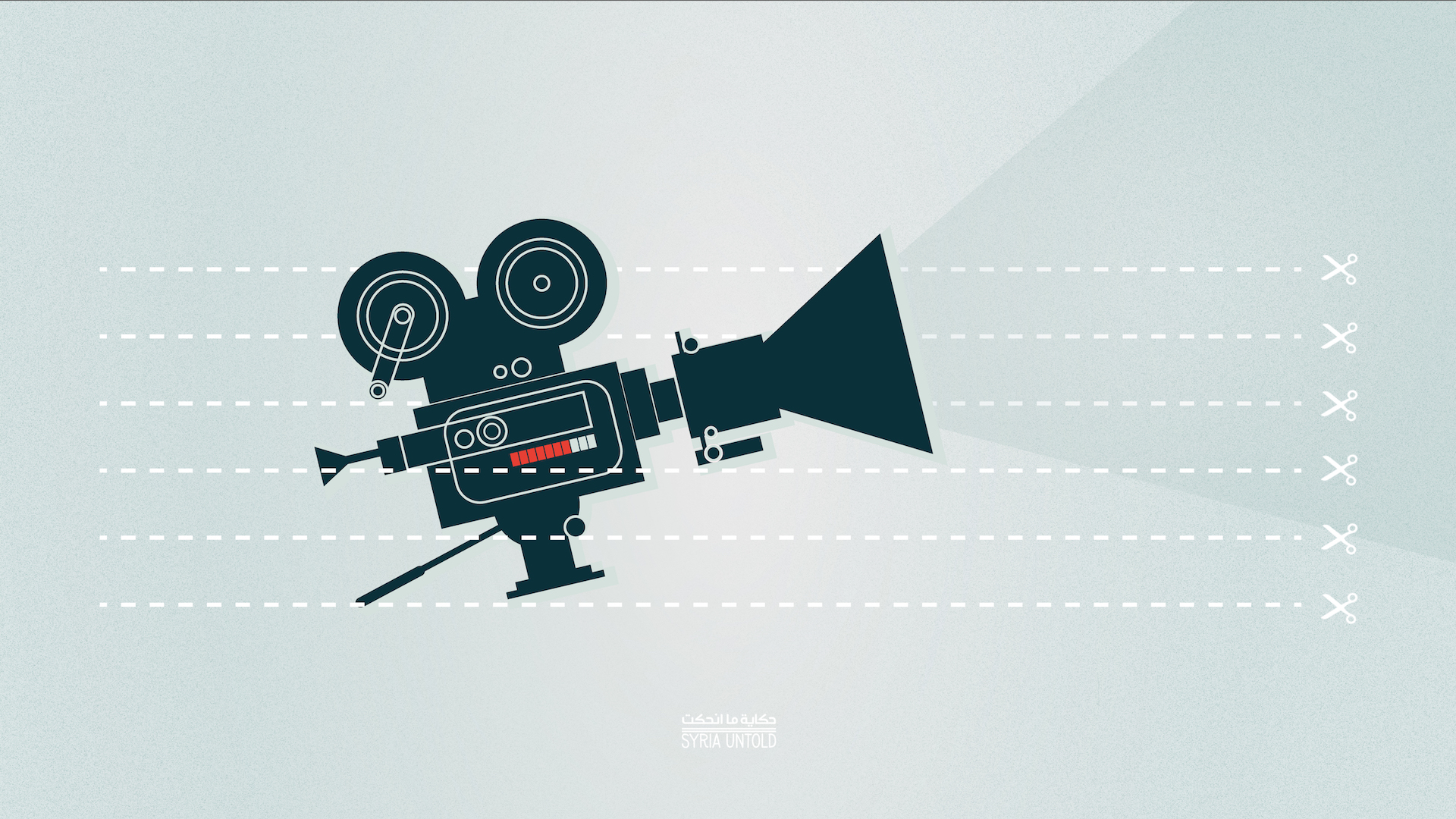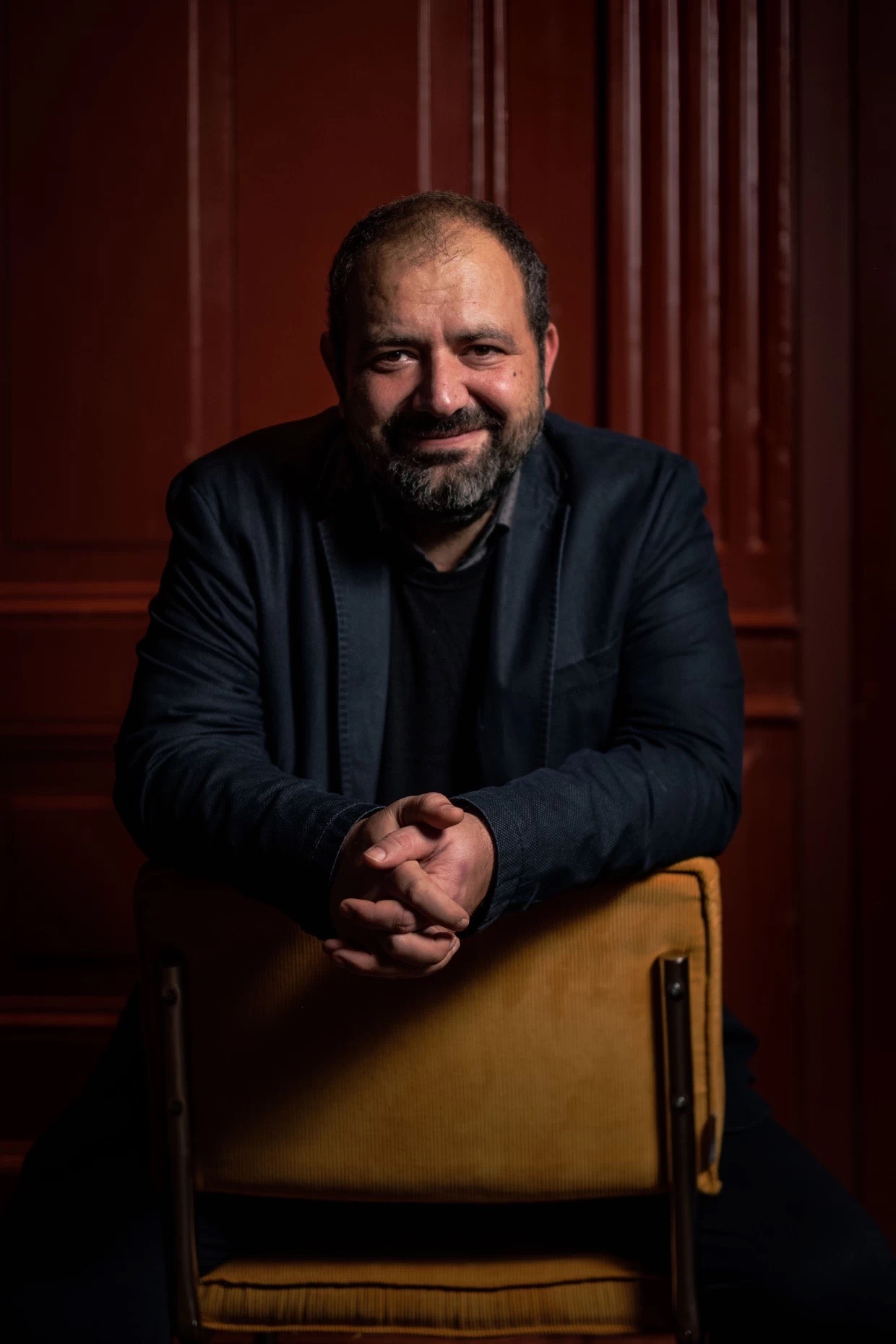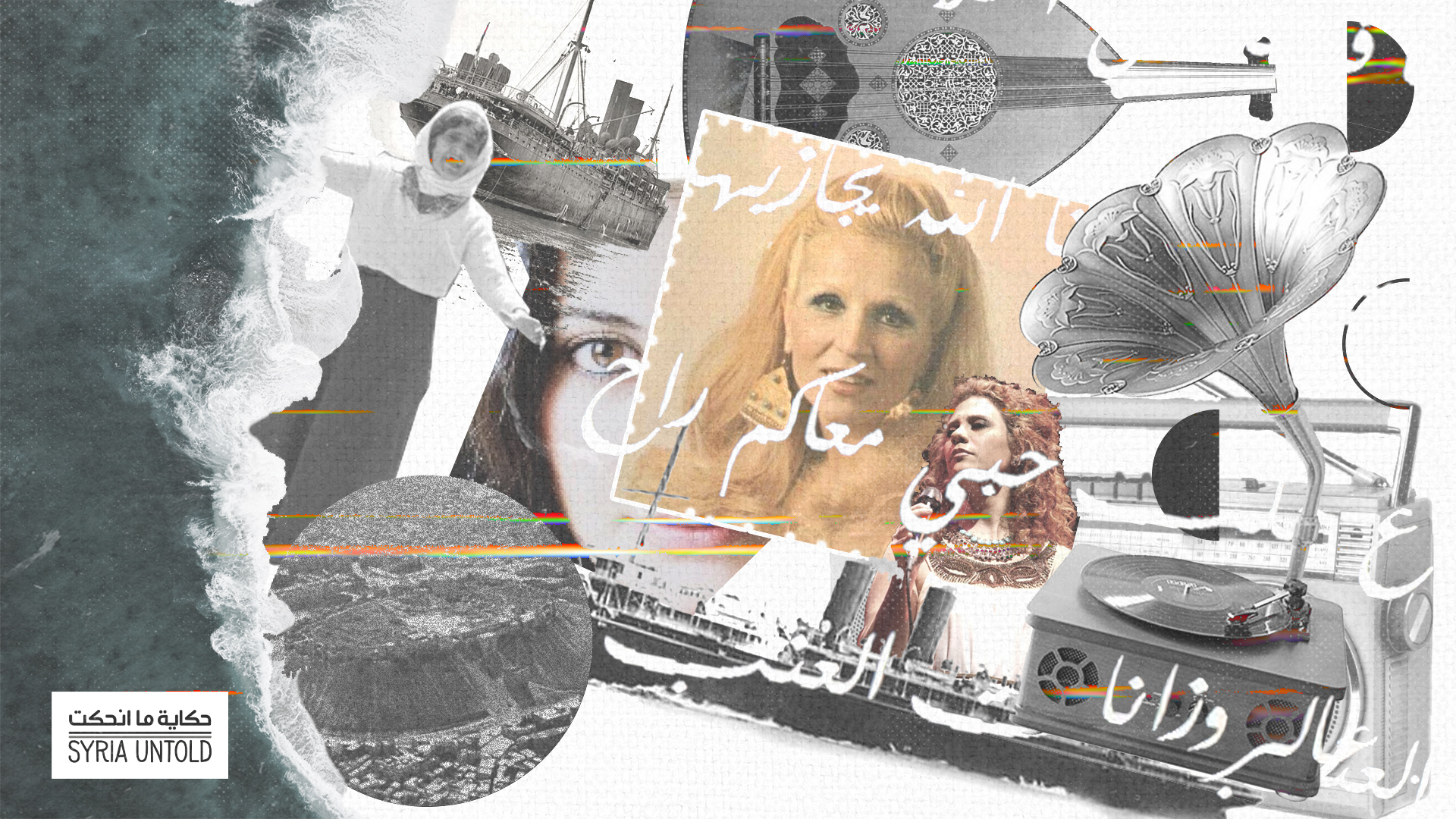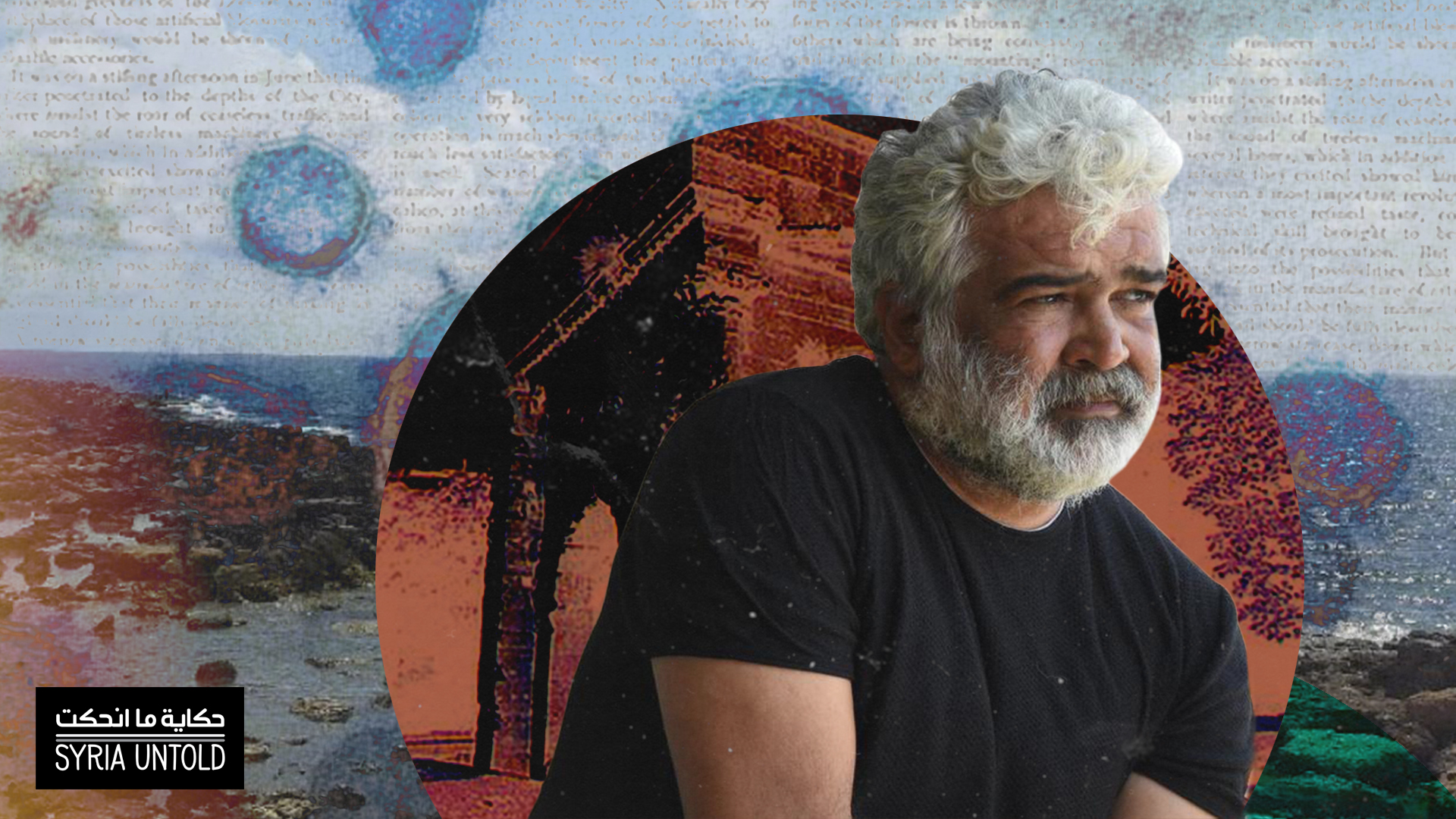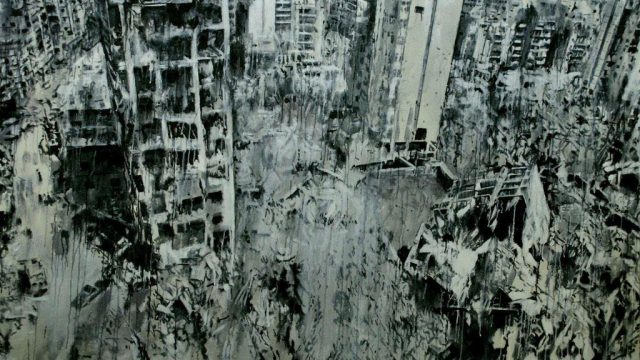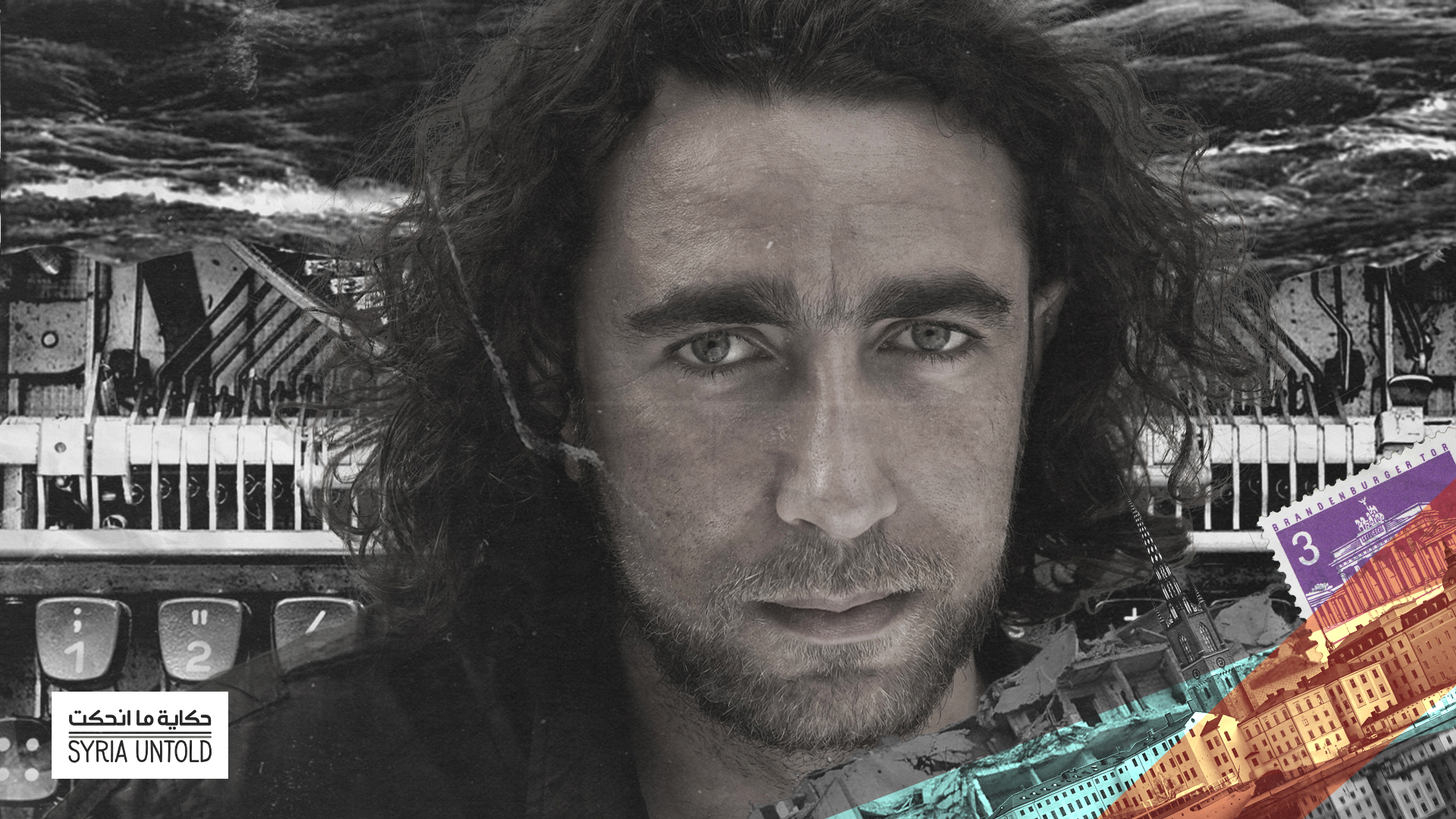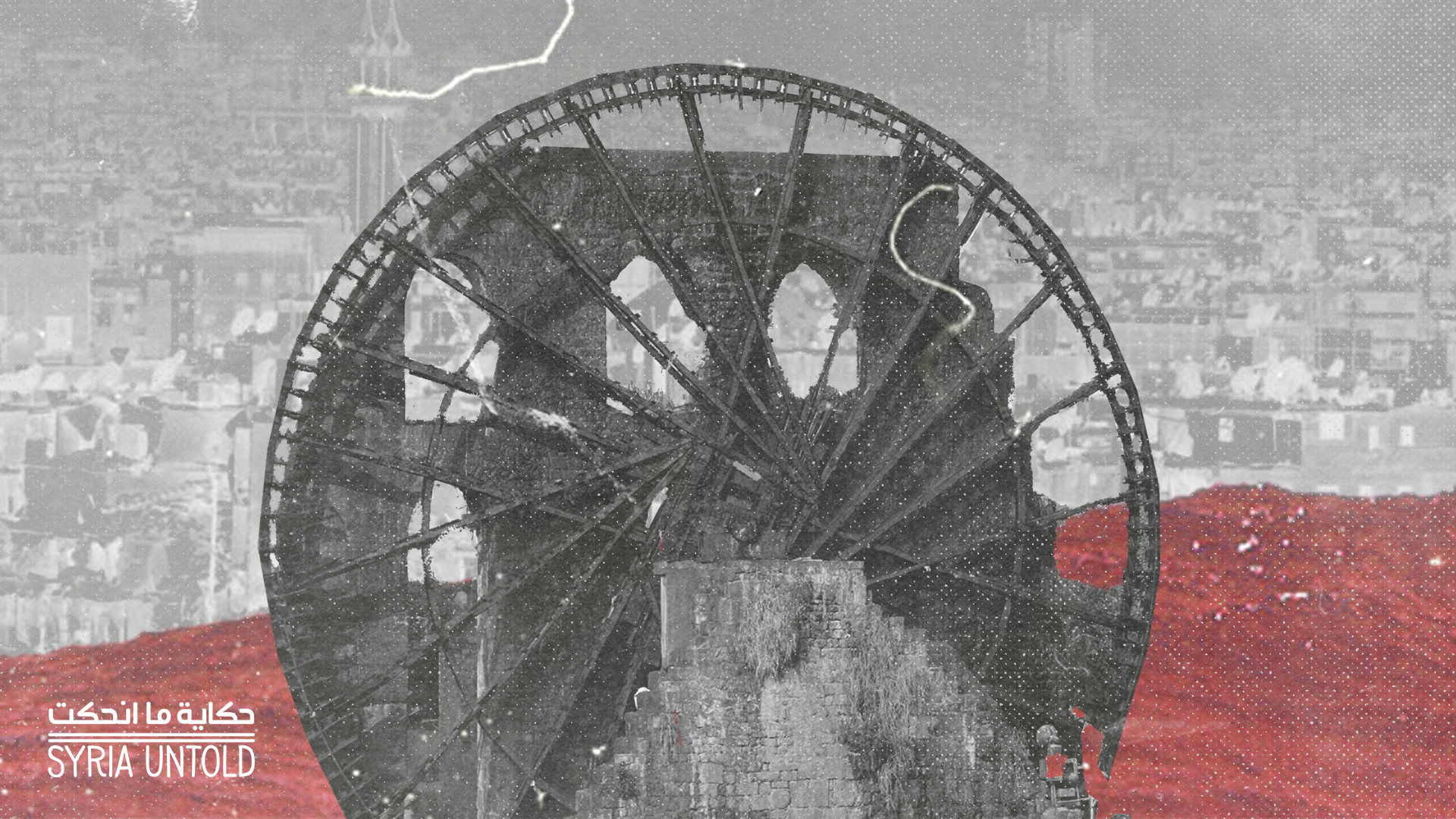This is a conversation that took place in Amsterdam between Orwa Nyrabia—co-founder of Dox Box, Proaction Film and No Nation Films, and current artistic director of the International Documentary Film Festival of Amsterdam (IDFA)—and Maya Abyad, a journalist, film director and colleague of Mr. Nyrabia. It is the most recent part of a longer discussion maturing between them over a longer period of time.
The conversation was edited for flow.
We’ve had discussions, with you and other cineastes and writers, about the new wave of Syrian cinema, in relation to revolution, exile, representation, censorship and production industry dynamics.
How does all this affect the Syrian audience's relationship with Syrian cinema?
What does “Syrian audience” mean?
We are still living through a difficult stage as Syrians. The relationship between Syrians and the images of their tragedy is still very sensitive; that is only expected of any people in a situation this tragic. I must emphasize that what I say here is descriptive of this stage we’re at, and not judgmental towards anyone.
From exile in Beirut, cinematic ‘beginnings’
17 July 2020
In Syria’s new cinema, the 'off screen' as a phantasmic place
24 July 2020
There are various patterns of interaction from Syrians viewing these films today. The most visible of them is the loudest group, what is referred to as the “revolutionary audience.” Many cinephiles of the Syrian opposition tend not to watch the Syrian film as they would watch other films. They watch it to inspect it. So a film would be more viewed (and pirated) if it is "revolutionarily" controversial. The act of viewing becomes an act of checking or verifying my image. Almost like an act of censorship, violent against the film. Films are not made for an inspector's eyes; films are made for a viewer's eyes.
Then there are large numbers of Syrians whose relationship with the topic is more "liberal." They are trying to live "in peace” as much as possible, and that often starts with avoiding watching those films in the first place.
There is also the audience living under regime control and thus has no voice, so we don’t know what their experience is, or even if they watch these films or not.
Finally, there is a pro-regime audience which, much like the revolutionary audience in this aspect, has a clear predetermined opinion from which they inspect the films they watch.
So, the question actually is: to which Syrian audience are we referring?
Do you think this tendency to inspect rather than watch comes from the fear of political consequences or social backlash these films can have on Syria and Syrians?
I think this is only a rational justification some people tend to tell themselves. I think it is more about deep and painful narcissistic wounds connected to their own image.
Most of the documentary films that were successful in the West presented a romanticized image of the Syrian revolution. The story of a people that rose up against oppression and fought for freedom. So, I don't think the real reason is fear of political consequences. Moreover, the phase in which some people expected cinema to change the Syrian reality has passed, even if it existed in earlier stages.
I think the problem lies rather in the need to inspect my image. Do I like the symbolic Me in the film? How I would like to see myself? Is the film condemning those I would like to be condemned? And if I support it, will I be supporting the voice of someone I don’t necessarily agree with on everything?
Another aspect to this is the fact that Syrian society sees a filmmaker as a leader. Then, like with all types of leaders over the past decade, they are rejected and inspected with very little mercy. A filmmaker is asked/expected to represent us or be rejected...The Syrian protesters’ slogan “Only the Martyr represents me” manifests a level of nihilism that is maybe particular to the Syrian context today and that might help us understand the complexity of “allowing” somebody to “represent."
In the end the Syrian film, according to this view, is discussed as an informative and politically representative media project and not as an artistic interpretation of reality. So we find most of the revolutionary audience seemingly considering it their right to watch these films online for free and immediately.
Syrian society sees a filmmaker as a leader. Then, like with all types of leaders over the past decade, they are rejected and inspected with very little mercy. A filmmaker is asked/expected to represent us or be rejected.
Even when they live in Europe or the US, they do not say: “Hey, there’s a Syrian film in the cinema, let’s go to watch it,” like they would for a normal film. It is more about wearing the inspector's glasses, and watching the film only in order to approve or reject it. Some filmmakers do believe that their film is “the people’s” or “the revolution’s,” but not all filmmakers feel this way or make their films with this view.
Some Syrian viewers criticize those films for seemingly addressing primarily a foreign audience. Some filmmakers have also complained that the production industry pressures them in that direction.
A famine, a ship and a folk song that spanned borders
18 December 2020
Syria’s year of pain, through the eyes (and pen) of Khaled Khalifa
21 November 2020
This question should be answered from within each film: Does the film present a simplified exotic gaze or build on common stereotypes, or is it criticized only because it is presenting a view that this or that group thinks does not represent them. So, in most cases, I think this is only a rationalization. It comes from the specific mindset I described: if, as a viewer, I do not like the Me in the film, I would simply accuse it to have been made for the Other, or for the Opponent, as if it was not addressing me.
Not being open to criticism in this very moment is the result of a difficult collective state, a moment of nation-wide violence and trauma. While we have to recognize the difficult relationship between the films and the Syrian audiences, it is also not fair to look at the Syrian people today (and the Syrian film today) while they live through this moment and assume that the relationship between them has been concluded and is a definitive one. It’s too early to demand an opinion on those films from this audience. More time and distance is needed. Perhaps we have to wait for the next generation.
These things change over time. Before the revolution we had a society that frequently refused to be filmed, hating its own image, even fearing it or feeling ashamed of it. During the first years of the uprising, many became proud of their image, celebrating the camerapersons, welcoming them and posing for their cameras. Today it seems we are back to what resembles being ashamed of our image.
Can you think of an example of another country that has gone through a similar cinematic process?
I’m not very sure there is one. But let's take, for example, the Chilean audience with the cinema documenting the days of Pinochet and what happened afterwards. In his last film, towards the end, in exile, [Chilean film director] Patricio Guzmán says: “When I was able to go back, I discovered that I no longer wanted to.”
Apparently, the Chilean audience was surprised. They thought: “No, the situation in Chile is not that bad.” They rejected [what Guzmán had said] and considered it demeaning and undermining. Here again we find a situation in which the local audience asks the filmmaker to either present their image as they like it to be, or to present a balanced and exhaustive work, as if a 90-minute film could include a national reality in its entirety.
But watching the film, one cannot not see Guzmán's love for Chile, his deep and complex expression of his love for his country.
It’s an example, but not to the scale of the Syrian case. What we are witnessing today in the Syrian cinema never happened before. It never happened that a country made a revolution in cinema to this level.
Until 10 years ago we were a country that produced an average of one and a half films annually by the National Film Organization, and maybe a zero-budget film every three years. Most of these films would just disappear into the global cinematic scene, with the exception of three or four well known directors. Today, a young woman, Waad al-Kateab, completely unknown before, reaches the Oscars with her first film and even shares an award in Cannes with Guzmán himself. There is something truly revolutionary here!
Where do we all go from our exile now? Can Syrian cinema continue like this?
I hope that Syrian filmmakers keep their options open and imaginative, in terms of which audience and film markets they choose to work with. Still, the choices made with each film do not necessarily determine its success. Fellini, for example, made very local Italian cinema but had a big success even in Japan.
Despite its uniqueness, the Syrian experience is part of the human experience, and the Syrian cinema is part of the global cinema.
Of course, context will affect future developments. Some cineastes will open up to the Arab world (the Gulf, Egypt, Arab Netflix); some will become part of the local industry of the country in which they live, others might open more globally, etc. We are currently in a phase that cannot continue permanently, and none of these options is good or bad in itself.
Raqqa, at the center of the universe
16 August 2020
For the moment, most of us are still working on Syria regardless of where we are. This is not unusual in the history of exile cinema. Rithy Panh has been living in France for about 40 years, working exclusively on the disaster of his motherland, Cambodia. He was able to get funding for his films because of their quality, and not because the Western audience is specifically interested in the tragedies of Cambodia 40-50 years ago.
Today, the chances for those who intend to make a small independent film, documentary or fiction, from our region, with a certain level of freedom, and just enough funding, have significantly increased. The chances for female directors have also significantly increased. Maybe they won't get rich, but their chances to make a film are definitely higher.
At the same time, we cannot deny that, in order to reach a local audience, Syrian directors have to be recognized first by global and mainly Western audiences.
Maybe this is how the cycle works at times. But, in many non-democratic states, there is a disconnect between “critical response” and actual distribution. Positive press reviews or intellectual opinions of a film do not translate into wider distribution or higher audience interest, as they do in regions where there are cinemas and where people appreciate the press more. All we have so far is television. Arab TV channels that the Syrian audience watches don't actually care so much for foreign awards. All they care about are their own agendas. So international success is not going to guarantee a chance on local TVs. Moreover, any new director in any country needs global recognition from big festivals to have a local success. This is not only a Syrian phenomenon. There’s even tougher competition among directors in countries that have stronger local cinema industries.
But then they have a local cinema community also, an institutionalized collective that both filters and supports.
In the West, and in the film world in general, the idea of intersectionality turns the questions of who can and who cannot make and show films into a collective issue. So, in the film world today, Syrian male or female directors are similar to a migrant African director, or an exiled Latin American director, and so on. Intersectionality brings us together as a support network against any potential industry discrimination. Their struggle for attaining opportunities, and accessing funding and screening platforms is collective. It is not an Arab or Syrian issue. There is a much wider lobby and alliances amongst various minorities for it.
On the other hand, international co-production has been behind Syrian independent cinema for the past 30 years. In this sense, it is nothing new to co-produce with foreign partners. Before 2011 it was done to overcome the constraints of the political situation and the corruption in Syria, in addition to the technology limitations; now it is done because of exile.
All this leads us to the question: What is “Syrian cinema”? Do we define it by the nationality of the filmmaker? By subject matter? Financing sources? Story? Or by a consensus among Syrians that it is “their film”? I am not sure I know how to define it, or if I should. It was easier in the less globalized reality of the 1980s or 1990s. Now it is different, and we have to make sure that we’re not walking the thin line between belonging and nationalism. Does foreign influence "stain the purity" of a cinema?
What about the cinema inside regime-held Syria, working for or alongside the authorities?
There is more continuity between the pro-revolution films and the Syrian cinema before 2011, than there is between the latter and this pro-regime cinema that is emerging today. Syrian cinema was historically critical. It was a cinema of opposition. Perhaps it was not revolutionary, but certainly more critical than loyal.
Even with all the red lines surrounding it?
Like in Soviet cinema, Syrian films did not directly say what they wanted but they crossed many lines. Like when Raymond Boutros shows the Assi River turning red around Hama's water wheels in his 1990 film “Al Tahaleb” (“The Moss”). This is one of many examples.
But now it is different. For example, look at Mohamed Abdulaziz “Four O'Clock, Paradise Time” (2015). We cannot define it as a pro-regime propaganda film, but it is a film by a director who is accepting the regime. Now even films like that are not produced anymore: you have just pure propaganda films. That is the really new phenomenon in Syrian cinema.
Moreover, the fact that we, from opposition cinema, boycotted the regime productions left many filmmakers within Syria cornered without hope. Eventually, the increasing regime corruption left only a handful of directors with access to state productions, and they are the worst ones, without any sense of ethical responsibility.
I wish we could see a truly free film come out of that side, one that forces you to feel the complexity and humanity of people there, and that presents a serious critical narrative. Not a cartoonish simplification, where the regime soldier is a romantic hero defending the nation against terrorists, aiming to please the mukhabarat or a polarized audience. But it’s just not happening…
In this field, the opposition has won. Pro-revolution cinema has freedom, it is often critical to the revolution itself, while the cinema inside Syria is even less free than it was before 2011.
How can Syrian directors reach out to Syrian audiences?
For those who dare, they could screen the films online, and for free, if they are in Arabic without subtitles, and access to it is limited to the Middle East through geo-blocking solutions.
The Arab film market is tiny: a film will only likely get one or two sales of about two to 20 thousand dollars at most. So even if there is a sales agent for the film, after theatrical screenings, there’s not much more to hope for from sales.
All this leads us to the question: What is “Syrian Cinema”? Do we define it by the nationality of the filmmaker? By subject matter? Financing sources? Story? Or by a consensus among Syrians that it is “their film”?
So that is something filmmakers can negotiate for with their distributors and producers, without much financial damage to anyone. This method means there will be a delay of one or two years between the first festival release and the time the film reaches the Syrian audience, but it is better than nothing.
So there is a technical or financial solution in the industry?
As I mentioned before, the relationship between the audience and the directors is the real problem.
What is preventing a filmmaker from making a tour of small screenings and Q&As with the Syrian communities in diaspora?
Some might prefer to be invited to screenings organized by other entities rather than reach out themselves, and of course there are logistical, cost and visa barriers to consider, but nothing you can’t overcome, if they want to do it. They also have the right not to. We have to also remember that filmmakers do dread the “inspector eye” we were talking about. It often makes showing the film a very stressful challenge, unless the film is a polarization tool with a large pool of advocates around it.
You don’t think filmmakers should be interested in the feedback of the community of which they are telling the stories?
With standard advocacy film, the answer is simple: Yes.
Because the film is claiming to represent this or that community. But this is a rather small category of films. At the other end of this question lies what we now call “vetted documentary.” This is the downside of this binary approach to right and righteousness and it ends with films which are 100 percent approved by the people they depict or by their lawyers. Not only lacking critical distance, but actually turning documentary film into a promotional tool, just like propaganda. A film has every right of being a critical subjective view. Consensus is the enemy of any artistic work.
Syrian cinema was historically critical. It was a cinema of opposition. Perhaps it was not revolutionary, but certainly more critical than loyal.
Whenever a film spoke about the situation of women in the Arab World, there were strong and loud voices accusing it of being “made for the West.” They were harshly rejected even by some women. Who is to blame here? The West? The filmmaker? The women? It is a game of deflection.
So, I think this way we fall back into the problem of national reductionism. As if we should constantly search for a unified Syrian identity, and thus a unified Syrian sense of representation and a unified Syrian feedback. But we live in a matrix and our identities are evolving. Syrians have never been all identical. They were diverse before the exodus and are becoming even more diverse now. It’s their diversity that brings them together, not its rejection.
It is problematic, maybe even chauvinistic, when in order to cherish my identity, I am expected to preserve my national wounds, and to hold on to my trauma. In this context, to overcome the trauma is perceived as a treacherous act.
But for me it is the denial of our reality (i.e., being in exile) and clinching to our trauma that constitutes defeat.
Victory here would need us to read reality and see the strength in it, and acknowledge that today we can be stronger than we ever could have been.
We are spread out all over the world, with relatively decent living conditions; if only we choose to accept that and turn it to our benefit.
There’s no need for extremes: we don't need to forget Syria, but we also don't need to deny our new geography and clinch on to our wounds. The past 10 years of Syrian history are many things, but they should not be our prison of victimhood. That would be a defeat.




